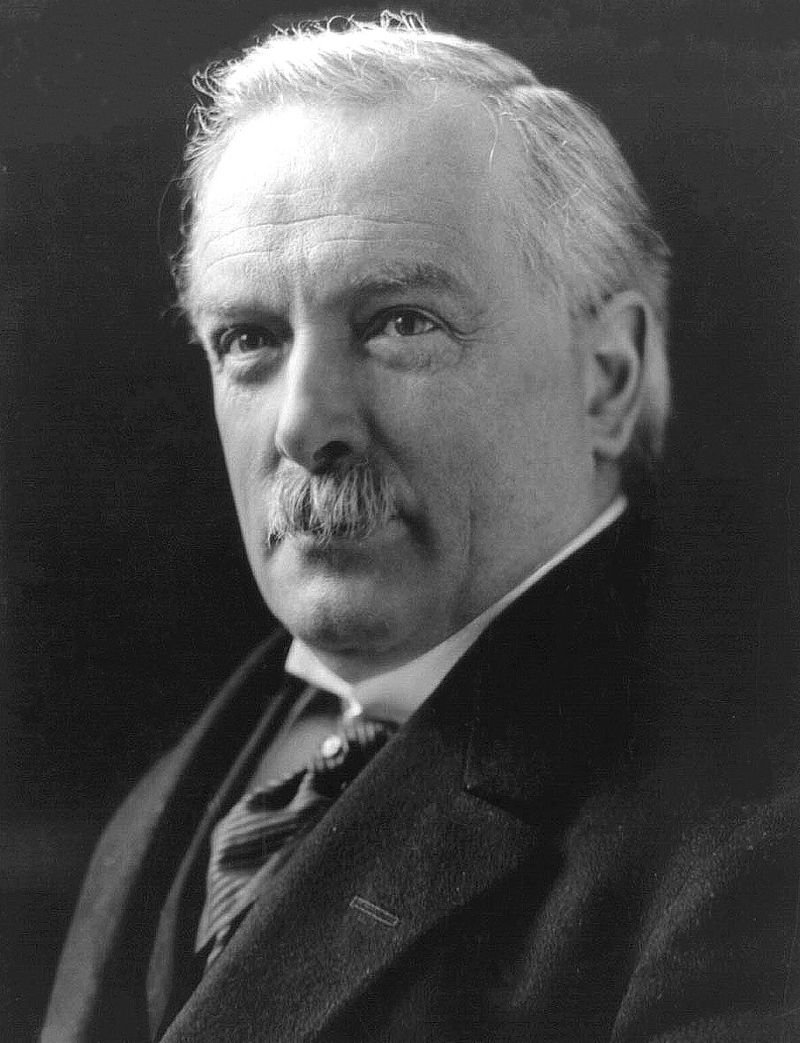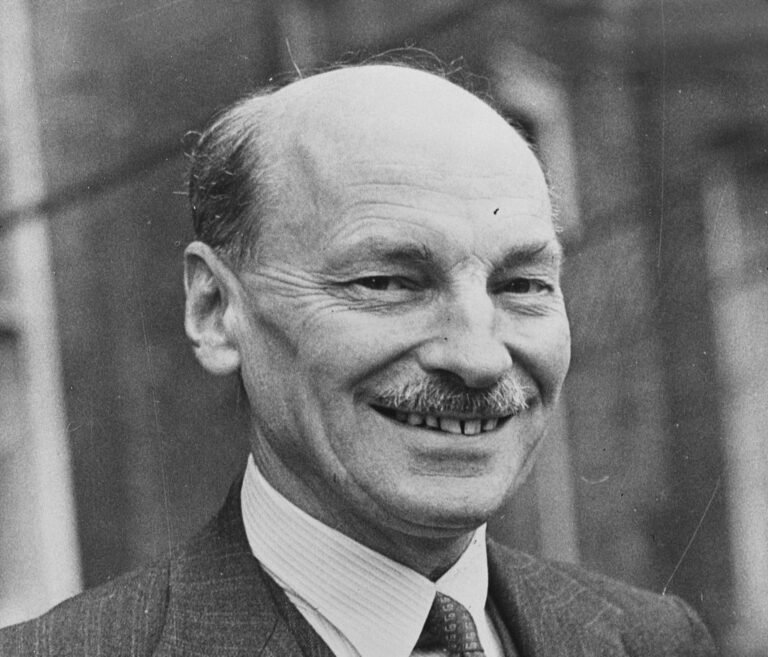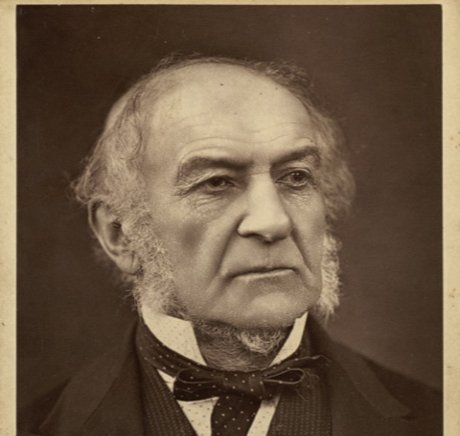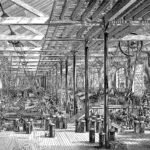David Lloyd George was a key figure in British politics. He played a significant role during World War I.
Born in 1863, he rose through the ranks to become Prime Minister of the United Kingdom from 1916 to 1922. Known for his dynamic leadership and reformative policies, George’s tenure was marked by both controversy and acclaim. He was instrumental in introducing social reforms that laid the groundwork for the modern welfare state.
His political career was a blend of ambition and pragmatism, which often drew both admiration and criticism. Understanding his impact on British history provides insight into the evolution of modern governance and social policy. David Lloyd George remains a fascinating study of power, politics, and reform in the early 20th century.
Early Life
David Lloyd George, one of Britain’s most influential Prime Ministers, had a fascinating early life that shaped his future. Born into a modest Welsh family, his journey from humble beginnings to political prominence is truly inspiring.
Welsh Roots
Lloyd George was born on January 17, 1863, in Manchester. His parents were of Welsh descent, and he was raised in Llanystumdwy, a small village in North Wales.
His Welsh roots played a significant role in his upbringing. The cultural values and traditions of Wales deeply influenced his character and ambitions.
Being surrounded by the Welsh language and customs, Lloyd George developed a strong sense of national identity. This connection would later fuel his political passions.
Education And Influences
His education was unconventional. He was primarily home-schooled by his uncle, Richard Lloyd, a shoemaker with a keen interest in politics.
Richard’s teachings ignited Lloyd George’s interest in public affairs. He often debated political issues with his uncle, sharpening his analytical skills.
Lloyd George attended Llanystumdwy National School, where he excelled academically. His thirst for knowledge and love for learning were evident even at a young age.
How do you think your early influences shape your ambitions? Lloyd George’s early life shows that even humble beginnings can lead to greatness.
Political Beginnings
David Lloyd George’s political career is a fascinating journey. He started with humble beginnings but quickly rose to prominence. His early years in politics set the stage for his later achievements. He displayed a keen interest in social issues and reforms.
Entry Into Politics
David Lloyd George entered politics at a young age. He was elected to the House of Commons in 1890. He represented the constituency of Caernarfon Boroughs. His oratory skills gained him recognition. He was known for his passionate speeches. He fought for the rights of the Welsh people.
His commitment to social justice was evident. He advocated for land reform and disestablishment of the Church in Wales. He was determined to make a difference. His early years in politics shaped his future path.
Rise In The Liberal Party
David Lloyd George’s rise in the Liberal Party was swift. He became a prominent figure and was appointed President of the Board of Trade in 1905. He introduced significant reforms and worked on reducing unemployment and improving working conditions.
In 1908, he was appointed Chancellor of the Exchequer. He introduced the People’s Budget. This budget aimed at social welfare. It included pensions for the elderly. It was a groundbreaking move. He faced opposition but stood firm.
His dedication and vision made him a key leader. He continued to push for reforms. His influence in the Liberal Party grew stronger. His political journey was marked by determination and resilience.
Role In World War I
David Lloyd George played a crucial role in World War I. His leadership was instrumental in ensuring the Allies’ victory. Let’s explore his contributions during this significant period.
Minister Of Munitions
When the war began, Britain faced a shortage of munitions. Lloyd George was appointed Minister of Munitions in 1915. He tackled this problem head-on.
Under his leadership, the production of weapons increased dramatically. Factories were reorganized to maximize efficiency. This ensured that British forces were well-equipped.
Lloyd George’s innovative approach revolutionized the supply chain. He introduced measures to streamline production. This led to quicker and more reliable delivery of munitions to the front lines.
His efforts were not just about machines and factories. Lloyd George motivated workers. He made them feel part of the war effort. This boosted morale and productivity.
Prime Minister During War
In 1916, Lloyd George became Prime Minister. His leadership during the war was marked by decisiveness and resilience. He faced immense pressure but remained focused.
One of his key strategies was forming the War Cabinet. This small group allowed quick decision-making. It proved effective in managing the war efforts.
Lloyd George also strengthened alliances. He worked closely with other Allied leaders. This unity was crucial for planning military operations.
His speeches inspired the nation. Lloyd George was a master orator. He used his words to rally the public and keep spirits high during tough times.
Imagine being in Britain during the war. You would have heard Lloyd George’s voice on the radio. His confidence and determination were contagious.
David Lloyd George’s role in World War I was multifaceted. How do you think his leadership style influenced modern political strategies? His approach to problem-solving and motivation remains relevant today. Dive deeper into his legacy and consider how his methods can be applied in your own life.

Credit: www.britannica.com
Post-war Reconstruction
David Lloyd George played a crucial role in post-war reconstruction. After World War I, Britain faced many challenges. The economy struggled, and society needed healing. Lloyd George’s leadership was vital during this period. His policies focused on rebuilding and reforming.
Economic Policies
Lloyd George introduced several economic strategies to boost recovery. He pushed for increased industrial production. This helped create more jobs for returning soldiers. Trade agreements were negotiated to expand markets. These efforts aimed to stabilize the national economy. Tax reforms were also introduced to ease burdens on citizens. Infrastructure development was another priority. Roads and railways were improved to support growth.
Social Reforms
Social welfare was a key focus for Lloyd George. He worked to improve living conditions for many. Housing initiatives aimed to reduce overcrowding in cities. Health care reforms provided better access to services. Education was expanded to reach more children. These changes aimed to foster a healthier, educated society. Workers’ rights were strengthened, ensuring fair treatment. His vision was a fairer society for all.
Impact On British Society
David Lloyd George significantly influenced British society during his time. His social reforms improved the lives of many people. The introduction of health insurance and unemployment benefits marked progress towards a welfare state.
David Lloyd George left a significant mark on British society that resonates to this day. His policies and reforms during his time as Prime Minister and Chancellor of the Exchequer reshaped the social landscape of Britain. His initiatives laid the groundwork for what many consider the modern welfare state.
Welfare State Foundations
Lloyd George’s role in establishing welfare state foundations was pivotal. He introduced social insurance programs, like the National Insurance Act of 1911. This act provided workers with insurance against sickness and unemployment, a novel idea at the time.
These reforms reflected his belief in social justice and support for the working class. They aimed to reduce poverty and provide a safety net for those in need. You might find it interesting that these efforts were met with resistance but also paved the way for future welfare policies.
How often do we take modern social benefits for granted without considering their origins? Lloyd George’s vision was ahead of its time, addressing needs that still resonate today.
Public Health Initiatives
Lloyd George’s impact extended to public health initiatives, focusing on improving the nation’s overall health. He championed the Health Insurance Act, which provided medical benefits to workers. This was a crucial step towards universal healthcare in Britain.
His initiatives highlighted the importance of healthcare access for all, not just the privileged. This focus on health reform was a response to the poor living conditions many faced during the industrial age.
Consider how the availability of healthcare affects your daily life. Lloyd George’s push for public health not only improved individual lives but also strengthened communities.
Reflect on the historical significance of these changes. They serve as a reminder of the power of policy to shape society and the lives of its citizens.
What do you think would be different today if these foundations had not been laid? Understanding these origins helps appreciate the progress made and the challenges that remain.

Credit: en.wikipedia.org
Foreign Policy Achievements
David Lloyd George, the British Prime Minister during World War I, had a significant impact on foreign policy achievements. His leadership marked an era of crucial international agreements and initiatives that shaped the modern world. Let’s delve into two of his most notable accomplishments: the Treaty of Versailles and the League of Nations.
Treaty Of Versailles
The Treaty of Versailles was a monumental achievement in Lloyd George’s career. This peace treaty ended World War I, and Lloyd George played a crucial role in its formation. He was one of the “Big Four” leaders who negotiated the terms.
However, the treaty wasn’t without its controversies. While it aimed to prevent future wars, it imposed harsh penalties on Germany. Lloyd George navigated these challenges with a vision of maintaining a balance of power in Europe.
His efforts in the treaty reflected his diplomatic prowess. By balancing the demands for reparation and the need for a stable Europe, he showcased his ability to mediate between conflicting interests. How do you think such balancing acts influence long-term peace?
League Of Nations
The League of Nations was another cornerstone of Lloyd George’s foreign policy. This international organization aimed to maintain world peace and prevent another global conflict. Lloyd George supported its creation despite skepticism from some quarters.
His commitment to the League showed his forward-thinking approach. He believed in collective security and the importance of international cooperation. This was a bold move considering the isolationist tendencies of the time.
Although the League had its limitations, it laid the groundwork for future international bodies like the United Nations. Lloyd George’s vision was clear: a world where nations worked together to resolve conflicts. How do you think today’s international relations would look without such early efforts?
Controversies And Criticisms
David Lloyd George was a key figure in British politics. Yet, his career was not without controversies. He faced many criticisms during his time. Let’s dive into some of these issues.
Political Scandals
One major scandal involved the sale of honors. Lloyd George’s government was accused of selling titles. These titles included knighthoods and peerages. Many people saw this as corruption. The scandal damaged his reputation.
Another controversy was the Marconi scandal. It involved insider trading. Several politicians, including Lloyd George, bought shares in the Marconi Company. They did so before the public knew about a government contract. This created a conflict of interest. The public viewed it as unethical behavior.
Opposition And Legacy
Lloyd George faced opposition from various groups. Some disliked his policies on social reform. Others criticized his approach to World War I. He had to deal with strong political enemies. These challenges made his leadership difficult.
Despite the controversies, Lloyd George left a lasting legacy. He introduced many social reforms. These reforms improved the lives of many people. His role in World War I also shaped his legacy. People still debate his impact today. Some see him as a great leader. Others focus on his mistakes and scandals.
Legacy
David Lloyd George’s legacy is marked by his leadership during World War I and his role in shaping modern welfare policies. As Prime Minister, he significantly influenced British politics and social reforms.
David Lloyd George is a name that echoes through the corridors of history, leaving a legacy that continues to influence Britain today. As you delve into his contributions, you’ll find that his impact was not just fleeting. Instead, it laid the groundwork for many modern policies and societal norms. Understanding his legacy offers a window into the evolution of Britain and prompts you to reflect on the enduring power of political leadership.
Influence On Modern Britain
Lloyd George’s tenure as Prime Minister brought significant reforms that shaped the Britain you know today. His innovative approach to social welfare, including the introduction of national insurance and pensions, set the stage for the modern welfare state. Imagine navigating life without these safety nets; it’s hard to picture.
His commitment to education paved the way for more accessible learning opportunities. The emphasis on education during his leadership resonates with today’s push for equal access and quality. How do you think these early efforts continue to shape the educational landscape?
Historical Significance
Lloyd George’s leadership during World War I marked a turning point in British history. His strategic decisions and diplomatic skills helped steer Britain through one of its most challenging periods. You might wonder how different the world would be if not for his bold choices.
His influence extended beyond wartime leadership. The Treaty of Versailles, which he helped craft, reshaped international relations and set the stage for future global diplomacy. Have you ever considered the ripple effects of these historical decisions on current international policies?
Lloyd George’s legacy is a testament to the lasting impact of visionary leadership. As you explore his contributions, it’s fascinating to see how they intertwine with the fabric of modern Britain. What lessons can you draw from his tenure that apply to today’s challenges?
FAQs
Who Was David Lloyd George?
David Lloyd George was a British statesman. He served as Prime Minister from 1916 to 1922. He led Britain through the latter part of World War I.
What Were Lloyd George’s Major Achievements?
Lloyd George’s major achievements include leading Britain during WWI. He also introduced social welfare reforms and helped establish the League of Nations.
When Did Lloyd George Become Prime Minister?
David Lloyd George became Prime Minister in December 1916. He succeeded H. H. Asquith during the First World War.
What Role Did Lloyd George Play In WWI?
Lloyd George played a pivotal role in WWI. He coordinated the war effort and secured victory for the Allies.
Conclusion
David Lloyd George’s legacy remains influential in modern politics. His leadership during World War I was significant. He implemented social reforms that changed Britain forever. His contributions to the welfare state were groundbreaking. Lloyd George’s vision for a better society still resonates today.
His impact on history is undeniable and enduring. Understanding his achievements helps us appreciate our present. A truly remarkable statesman, his influence endures.








